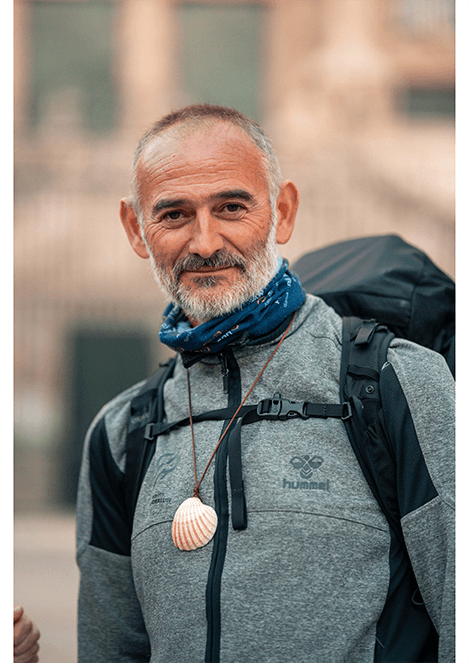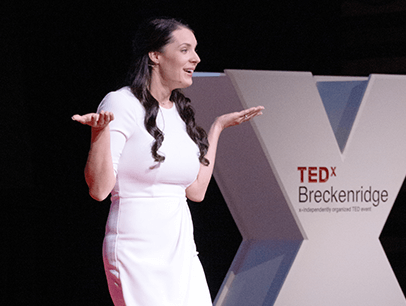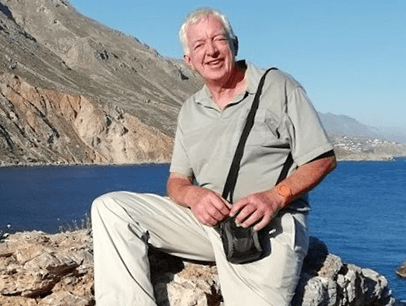
A few years ago, a friend told me, “When you talk about the Camino de Santiago your eyes shine. Do it and enjoy the journey.”
The Camino de Santiago is a network of ancient pilgrim routes that stretch across Europe and come together in northwest Spain. Despite being Spanish and even having lived in Galicia (the final destination of the Camino routes) for two years, I never felt a desire to walk the Camino. But living in Denmark, I suddenly felt the circumstances were right. I wanted to start a new step in my life in all senses. I wanted to welcome new directions, purposes, projects, and people.
In October 2021, I chose the Camino Portugues, along the coast of Portugal, mostly because I wanted to challenge myself with another language and culture. The plan was to walk approximately 330 miles (530 km) in nearly three weeks. Every day I had meaningful short encounters and my inner peace blossomed. I started gathering anecdotes and ingredients to use in my Toastmasters speeches, which led me to the realization that the experience of walking the pilgrimage had me taking on similar roles to a Toastmasters meeting.
Prepared Speaker: While walking alone for sometimes hours a day, I used my smartphone to write notes or record short audio clips with new ideas, examples, metaphors, a powerful start, or brilliant closing message. When I met people, I practiced my “Ice Breaker”—why I was here, why I chose this Camino. I played with duration, body language, pauses, and eye contact. This all led me to my first club speech after my return: “The Motivations for a Pilgrimage Route.”
Table Topics: I was walking 15-20 miles a day (25-35 km) and meeting people every day. I learned to converse on a variety of spontaneous topics: the landscape, international pilgrims (Austrian, American, Mexican, Czech, Russian, and others), the Portuguese language and traditions, food and accommodations, and our return home.
Evaluator: The most outstanding evaluation lesson I learned, ironically, was to be silent. Some discussions, and speeches, are so personal, revealing very delicate intimate details, and I learned that empathizing with active listening was my best evaluation.
Timer: Obviously, I was not using a stopwatch or color cards to advise my pilgrim companions about the time of their speeches or mine. But I learned to quickly sense when the time turned red because people would lose their attention, turn to someone else, or stop to take a photo.
Ah Counter: While most conversations flowed quite correctly, I noticed that people tended to use more frequent and longer pauses and more filler words when they were focused on something else, such as walking in rocky terrain, being distracted with nature, or thinking.
Grammarian: I practiced this role when non-native pilgrims tried to speak Portuguese or Spanish. As usual, some translation mistakes can be comical, with words or expressions that mean the opposite. I complimented them on outstanding words, phrases, or quotes. And they made corrections or comments on my English as well.
General Evaluator: Every night I had my own daily evaluation. I noted things I did well and points to improve. I worked on practicing patience, presence, flexibility, and availability. I learned to occasionally slow down my path to accommodate others and once walked three hours to share a thermal bath with local people in a small village.
Toastmaster of the Day: My daily task in this role was to decide the destination, the track, and the accommodation for the next stage. Sometimes I confirmed it in advance, other times I let destiny or other pilgrims guide me. It is the equivalent of preparing an agenda, but being aware that anything can happen. Being Toastmaster of the Day for 21 consecutive days is a huge training for life. You learn to accept that planning is good, and even necessary, but being able to flow with uncertainty and surrender are equally valuable skills.
I’ve since walked another pilgrimage route, the Italian route of the Via Francigena, in different circumstances, and I am already planning more pilgrimages in other countries and continents. I have learned that wherever I go and whatever path I take, Toastmasters will always accompany me.
Alejandro Martinez lives in Virum, Denmark, and is Club President of Amigos Toastmasters in Virun, Denmark.



 Previous
Previous

 Previous Article
Previous Article

